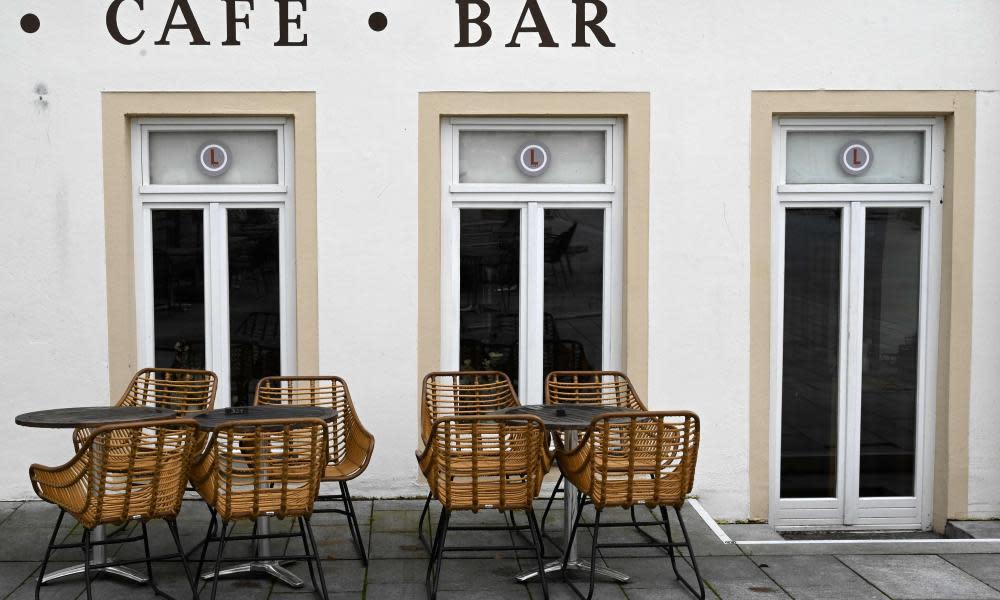Germany set to impose new coronavirus rules amid record rise in cases

Germany is on the verge of imposing new coronavirus restrictions amid a record rise in infections.
Contacts are to be reduced to a maximum of two households, and no more than 10 people, according to initial, unconfirmed reports from a video meeting on Wednesday between Angela Merkel and the leaders of Germany’s 16 states.
The government is expected to advise Germans to avoid “unnecessary, private journeys”, including visiting relatives.
Restaurants, bars, leisure facilities and cultural institutes including opera houses and theatres are expected to face orders to close, while schools and nurseries are expected to remain open, as well as the majority of businesses and work places, according to draft proposals.
The measures, the most dramatic in months to tackle an exponential rise in new infections, are expected to come into force on Monday, and to continue for the whole of November. They will be reviewed after two weeks.
Ahead of the meeting, Merkel said the measures were necessary to tackle a situation that was in danger of spiralling out of control. New infections in Germany are doubling every seven to eight days, while the number of occupied intensive care beds has doubled around every 10 days. “We only need the doubling another four times and then the system is finished,” she said.
Merkel told the state leaders that “every day counts”, arguing that the more they did now, “the more time we buy for the Christmas holidays”.
State leaders have often been reluctant to recognise the urgency of the situation, and last month Merkel was accused of alarmism after suggesting that infections could be at more than 19,000 a day by Christmas. But that figure is likely to be reached much sooner.
The effect of the new measures on the health system are not expected to be fully evident for 30 days.
Olaf Scholz, the finance minister, announced that the government would dip once again into the nation’s tax revenues in order to help ease the financial impact on businesses forced to close. He said that small businesses would be compensated with up to 75% of their revenue for the same time last year, for the period they were forced to close, while bigger businesses, he said, should receive up to 70% from the state. It is estimated that the month long lockdown will cost the state between €7bn and €10bn.
In Berlin, thousands of people from the arts and hospitality industries took to the streets to protest against what they see as the neglect of their sectors, amid a growing sense of anger over political mismanagement. Flamenco dancers, DJs, hoteliers and waiters were among those who marched through the government quarter calling on the leaders to heed their appeal for financial help.
With private gatherings reduced to a maximum of just two households, and no more than 10 people, a debate was triggered over just how the rules would be controlled.
Karl Lauterbach, the health expert for the Social Democrats, sparked outrage earlier in the day by suggesting it may become necessary for doorstep checks to be made on private households to ensure people were sticking to the rules.
Having initially appeared to argue that police should be able to enter people’s homes, he later modified his remarks and said that Ordnungsämter, or orderlies, who are already a permanent fixture on Germany’s streets, could ring on doorbells and talk to people to ensure they knew and were following the rules.
Hesse’s state leader, Volker Bouffier, called on the government to decree a national health emergency in order to facilitate the implementation of the new rules nationwide.
The measures have been widely referred to as a “lockdown lite”, though the government has been reluctant to refer to them as such, speaking instead of a “wave break”.


